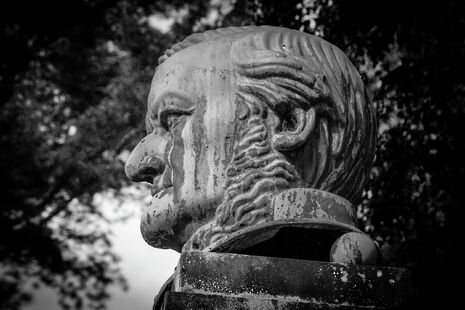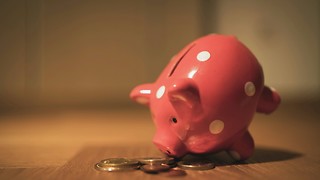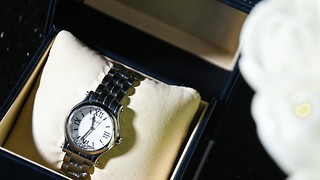The Art of Art: Awful people as amazing artists
In the second of her column series, Bea Hannay-Young approaches the problem involving creations and their immoral creators

It has long puzzled me how one of my favourite pieces of cinema – the 1970s reverie Annie Hall – could have been born of one of my least favourite people, acclaimed director Woody Allen. Walter Benjamin once wrote that “at the base of every major work of art is a pile of barbarism”. It is one thing for a work of art to address or even exploit horrible topics (of which Lolita is, of course, the quintessential example); it is another issue, one far more open to dispute (though admittedly often and conveniently ignored), when it is the artists themselves that are horrible, and not the subjects that they address.
The issue is complicated; the crime of being ‘bad’ with which we may charge an individual is not the same kind of ‘bad’ that makes us scoff at a watercolour or turn up our nose at the theatre. Works in themselves rarely carry any kind of moral fibre (with the obvious exception of extremist propaganda), and so as much as we may hate to admit it to ourselves, perfectly dreadful people are perfectly capable of producing perfect things.
Art, it is at least hypothetically true, stands alone when competing for our critical attentions. Had Hardy moonlighted as Jack the Ripper, Jude the Obscure would still be a fantastic novel, with not even a comma altered by extra-textuality. For this reason, a whole suite of critics have argued that we ought to consider merit irrespective of that of the creator. Jewish conductor Daniel Barenboim is a heady proponent of such a view, championing the music of Wagner, even in Israel where it is hardly welcome. Wagner (along with, it should be noted, T.S. Eliot and Ezra Pound) was incredibly anti-Semitic, far more than was the norm at his time, and once even went so far as to say that Jewish people were so inferior they were literally incapable of producing art.
Adultery, substance abuse and mania are all vices which we expect, even encourage, in our artists. It’s no secret that works by so-seeming tortured types are liable to fetch far prettier pennies when falling under the hammer. We have romanticised the notion of the artist to the point where one is hardly worthy of a typewriter or an easel if they’re not also wholly committed to a lifetime of self-loathing, indebtedness, sexual promiscuity, and the occasional severed ear. We classify this as ‘roguishness’, but it blurs the distinction between that which can and cannot be condoned.
Byron committed incest, and Flaubert paid for sex with boys. Chris Brown’s career has barely stalled despite being convicted of assaulting his then-girlfriend Rihanna in 2009. And now we return to Woody Allen, accused by his adopted daughter Dylan Farrow of abusing her while she was an infant. Roman Polanski faces similar charges and yet the films of both directors are infallibly met with fanfare. In an open letter to the Hollywood Reporter, Farrow’s brother (and Woody’s adopted son) writes that the silence of both the public and the critics “sends a message about... what we’ll overlook… who matters and who doesn’t.” The case isn’t all that dissimilar from the ludicrously lenient sentence that met ‘Stanford Rapist’ Brock Turner after his conviction of, among other crimes, assault with intent to rape. Why is his victim less worthy of justice just because he can swim kind of fast? Why will we ignore allegations of abuse in order to enjoy some cleverly composed consecutive images for the better part of two hours? Are we really so shallow? More insidiously, we reinforce an unspoken false dichotomy – we become less likely to believe that good people can create good art, and so are more forgiving of misdemeanours. We feel that artists lend more of themselves to a work (warts and all), and so choose to believe that the end product justifies the means. Surely no one would ever suggest that an athlete would be incapable of Olympic performance without also being a drunk, a misogynist, or a drug addict (unless those drugs are steroids). Perhaps we create excuses born of a belief that creating truly great work requires a degree of megalomania – to which other indulgences are often bed-fellows. Great artists seem to – or maybe need to – live for their art more than they live for other people.
I’d like to believe that Alice Through the Looking Glass flopped at cinemas because people felt uncomfortable going to see a movie whose headline star had just been accused of violence against his wife. At least it can be certainly asserted that neither the Cosby Show nor any skit by Jimmy Savile will ever see air time again. Too often, though, our self-indulgence in the enjoyment of good art allows us to overlook horrible things. We are hypocrites, and we ought to demand more of ourselves and of our idols. Especially in the modern culture of personal branding: when you become an actively self-promoting public figure you enter into an unspoken social contract where your private life will be scrutinised. In some cases, like the non-consensual circulation of sexually explicit material, this is categorically unfair. In others, like the use of racist and misogynist slurs on a public forum – Twitter, for example (I’m looking at you, Trump) – people deserve to be held to account.
We need to be more careful in who we choose to endorse and legitimise. Perhaps I’m being a killjoy, but I think it actually makes sense to think about what we consume on an artistic level, else we risk normalising – or worse, circulating – horrible sentiments. I will concede it’s hard to know where to draw the line; I’ll be the first to step up and say that I’m a pretty devoted fan of Kanye’s music, but some lyrics are pretty awful (“I bet me and Ray J would be friends/If we ain’t love the same b***h/Yeah, he might have hit it first/Only problem is I’m rich” is particularly shudder-inducing). We can’t all step up and burn our Hemingway and our Dickens – the cornucopia of human genius would be pretty heavily depleted if we were to expel from it the work of nasty people. We would, however, all do well to be a little more discerning. Perhaps then things can start to move in a fairer direction
 News / East West Rail proposes new Cambridge East station26 November 2025
News / East West Rail proposes new Cambridge East station26 November 2025 News / News in Brief: Cat-astrophic climbs, concealed collections, and Christmas festivities25 November 2025
News / News in Brief: Cat-astrophic climbs, concealed collections, and Christmas festivities25 November 2025 Comment / Don’t get lost in the Bermuda Triangle of job hunting 24 November 2025
Comment / Don’t get lost in the Bermuda Triangle of job hunting 24 November 2025 Features / Why are we so obsessed with getting more done?26 November 2025
Features / Why are we so obsessed with getting more done?26 November 2025 Comment / Cambridge can’t beat AI26 November 2025
Comment / Cambridge can’t beat AI26 November 2025









